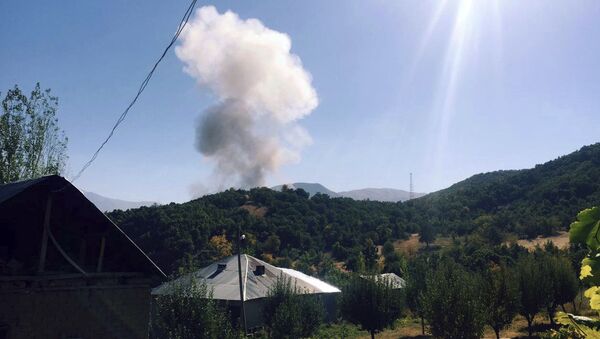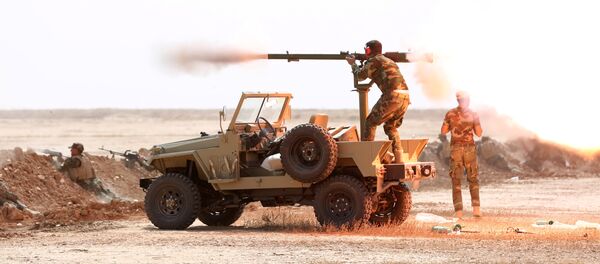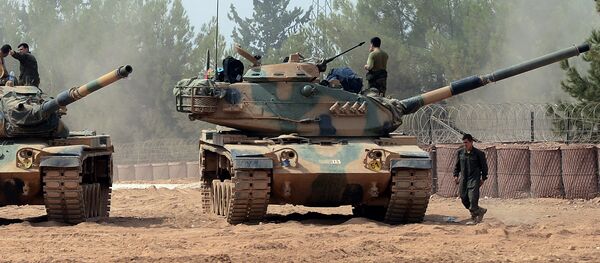The move invited an angry response from Ankara with Prime Minister Binali Yildirim saying that the Turkish troops would stay on no matter what.
“Russia could help defuse tensions between Baghdad and Ankara over the situation in Bashiqa and pull their efforts against Daesh. The operation to liberate Mosul, scheduled to start shortly, would undermine the terrorists’ positions also in Syria, which is very important to Russia and President Bashar Assad,” Barzani said.
He also mentioned a large Iraqi army, reinforced by an estimated 800 US military instructors, currently deployed south of Mosul, and Kurdish Peshmerga forces in the north.
“There are some 50,000 Shiite militiamen, backed by Iran currently deployed southwest of Mosul and ready to fight Daesh. And also Sunnis, which is exactly what Turkey fears insisting that the Shiite militia stays away from the operation to liberate Mosul,” Barzani noted, adding that this would give Turkey a bigger role in the operation.
"Mosul can be taken in a matter of just one month, but you will need at least three months to mop it up,” Aziz Barzani warned.
There were over 3 million people living in Mosul before it was taken over by Daesh. Most of them were Sunni Arabs, but there were also Kurds, Christians and Shiite Muslims living in and around Mosul.
Aziz Barzani did not rule out the possibility of an armed conflict flaring up between Shiite militia, Sunni Arabs and Peshmerga once Daesh has been flushed out. However, such a scenario could be prevented if Baghdad agreed to grant this region a federative status.
“With Daesh gone, the city will no longer belong to Baghdad because the Sunni Arabs and Kurds want autonomy rights. As a result, the city could be divided into four parts where Sunni Arabs, Kurds, Christians and Shiites would live separately from one another, while the city authorities will be reporting to Baghdad.”
“Another option is for Mosul to become a federative region, as stipulated by the 2005 constitution. And, finally, Mosul and Erbil could have confederative relations with Baghdad, just like what they now have in Bosnia-Herzegovina,” Barzani added.
“We have better relations with Turkey than with the central government in Baghdad. Mosul will gain much from cooperation with Turkey which, in turn, would have a chance to rebuild the city,” Barzani noted, adding that rich in oil and other mineral resources, the region could sell them globally via Turkey.
“Therefore, links between Turkey, Iraqi Kurdistan and Sunnis in Mosul will only strengthen after the city has been liberated from Daesh,” Aziz Barzani said in conclusion.




